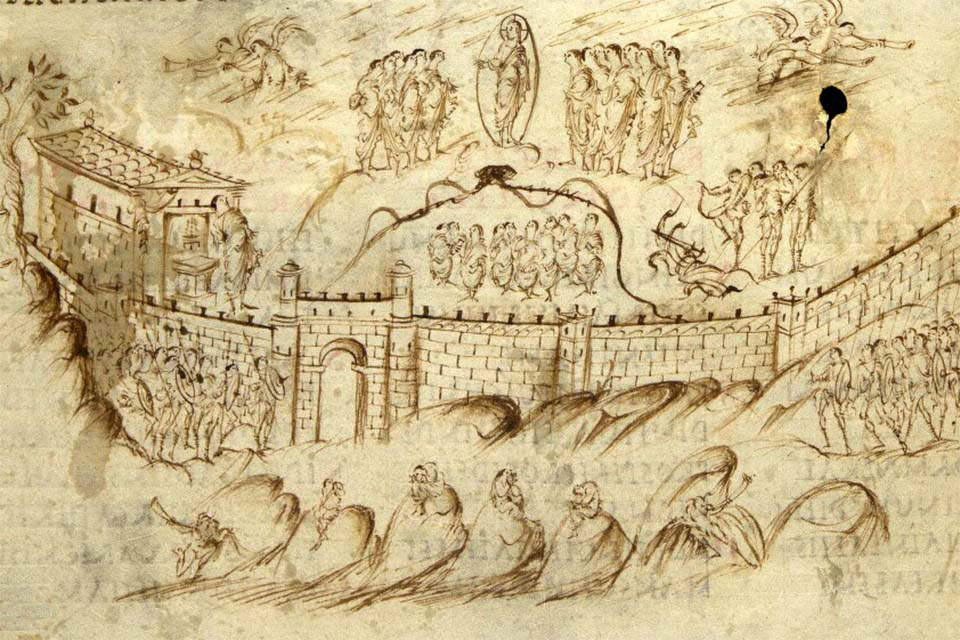Medieval history abounds with myth of historical shifts between forms of civic organisations and identities in the Middle Ages. New Book focus on citizenship, civic identity and civic participation in Late Antiquity and the Early Middle Ages
Civic Identity and Civic Participation in Late Antiquity and the Early Middle Ages
Ed. by: Cédric Brélaz and Els Rose
Book series: Cultural Encounters in Late Antiquity and the Middle Ages, 37
Bepols 2022
OPEN ACCESS
ABSTRACT
By reassessing the period c. 300-1000 ce through the concepts of civic identity and civic participation, this volume will address both the impact of Classical heritage with regard to civic identities in the political experiences of the late and post-Roman world, and the rephrasing of new forms of social and political partnership according to ethnic or religious criteria in the early Middle Ages. Starting from the earlier imperial background, the fourteen chapters examine the ways in which people shared identity and gave shape to their communal life, as well as the role played by the people in local government in the later Roman Empire, the Germanic kingdoms, Byzantium, the early Islamic world, and the early medieval West. By focusing on the post-Classical, late antique, and early medieval periods, this volume intends to be an innovative contribution to the general history of citizenship and democracy.
TABLE OF CONTENTS:
Part I. Local Communities, Citizenship, and Civic Participation in the Early Roman Empire (First–Third Century ce)
Local Citizenship and Civic Participation in the Western Provinces of the Roman Empire, p. 39
Clifford Ando
Democracy, Citizenship(s), and ‘Patriotism’. Civic Practices and Discourses in the Greek Cities under Roman Rule, p. 65
Cédric Brélaz
Part II. Local Identities, Civic Government, and Popular Participation in Late Antiquity
Civic Identity and Civic Participation in Constantinople, p. 93
Anthony Kaldellis
Social Status and Civic Participation in Early Byzantine Cities, p. 111
Avshalom Laniado
Informal Expressions of Popular Will in Late Roman Africa, p. 145
Julio Cesar Magalhães de Oliveira
Urban Identities in Late Roman Italy, p. 167
Pierfrancesco Porena
Cities and Civic Identities in Late Roman and Visigothic Spain, p. 195
Michael Kulikowski
Part III. Rephrasing Citizenship
Personal Identity in the Later Roman Empire, p. 215
Ralph Mathisen
A Relationship of Justice. Becoming the People in Late Antiquity, p. 249
Peter Van Nuffelen
Reconfiguring Civic Identity and Civic Participation in a Christianizing World. The Case of Sixth-Century Arles, p. 271
Els Rose
Legalizing Ethnicity. The Remaking of Citizenship in Post-Roman Gaul (Sixth-Seventh Centuries), p. 295
Stefan Esders, Helmut Reimitz
Part IV. Expressions of Civic Identity in the Early Middle Ages
Urban Populations in Early Islam. Self-Identification and Collective Representation, p. 333
Mathieu Tillier
Urban Culture in the Early Medieval West. The Case of the Episcopal Towns in the German Kingdom, p. 363
Marco Mostert
Elites and Urban Communities in Early Medieval Italy. Identities, Political Initiatives, and Ways of (Self-) Representation, p. 391
Gianmarco De Angelis
Citizenship and Contexts of Belonging. A Postscript, p. 417
Claudia Rapp
ABOUT THE EDITORS:
Els Rose as a Member of the Institute of Advanced Study, School of Historical Studies.
Cédric Brélaz as a Stanley J. Seeger Visiting Research Fellow in Hellenic Studies at Princeton University
